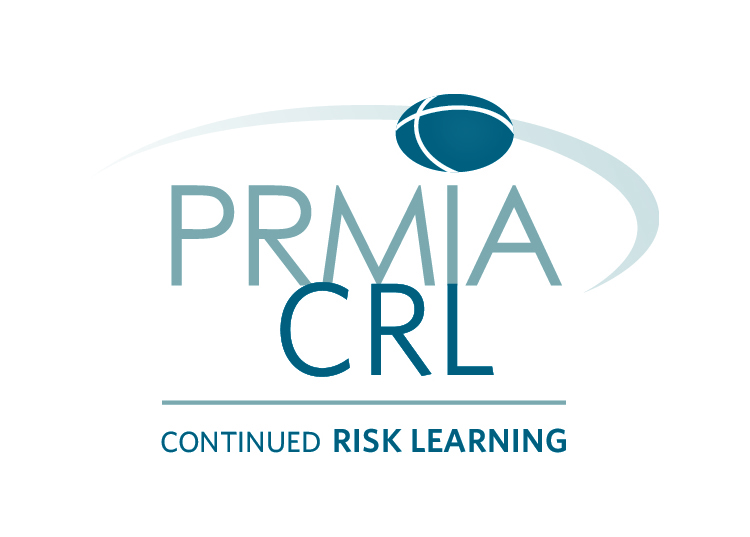Risk and Regulation for International Banks

New course! As banks get to grips with the volume of new regulation, maintaining compliance with all requirements has become a strategic objective for many. The need to understand the tools governing prudential banking regulation is pushing regulators, consultancies, and banks towards expanding their regulatory teams well beyond those of traditional banking (investment/asset management).
 Dates
Dates
Course Period: March 1 - May 16, 2022
Bye weeks April 12 - May 2
Lessons Launch: Each Tuesday beginning March 1, 2022
Instructor Access: March 1 - May 23, 2022
(Instructor not available April 12 - May 2)
Course Access: EndsJune 30, 2022
 Time: Self-paced
Time: Self-paced
 Instructed by:
Instructed by:
Ravel Jabbour, PhD
 Full Series Length:
Full Series Length:
All 8 lessons
~9.5 hours total
| About This Course |
|
|
As banks get to grips with the volume of new regulation, maintaining compliance with all requirements has become a strategic objective for many. Banking regulation has therefore been one of the highest growing sectors of finance in the last decade and arguably the least likely to be negatively impacted by cyclical (housing bubbles) and structural (Brexit) winds, quite the opposite.
As such, the need to understand the tools governing prudential banking regulation is pushing regulators, consultancies, and banks towards expanding their regulatory teams well beyond those of traditional banking (investment/asset management).
This course provides an overview of the main guidelines on the Basel banking regulation package focusing primarily on capital requirements from both a theoretical and practical perspective. At the end of the course, participants will be equipped with a firm understanding of capital requirements and the necessary tools to work in the regulatory space. Course Access EndsJune 30, 2022.
|
|
| Agenda |
| Lesson/Week |
Track/Level |
Topic |
Lesson 1
March 1
|
Introductory |
Overview of Banking Regulation
- The origin and need for banking regulation
- Interaction between international and national regulatory bodies
|
Lesson 2
March 8
|
Introductory |
Basel I and II
- The 3 Basel pillars
- Risk-based capital framework (Pillar 1)
- Basel impact on the economy
|
Lesson 3
March 15
|
Introductory |
Basel III
- Lessons learned from the financial crisis
- New capital requirements
- New liquidity requirements
|
Lesson 4
March 22 |
Intermediate |
Credit Risk
- Standardized approach
- Internal rating based approaches
- Credit risk mitigation
Output Floor
Operational Risk (Base II and III Approaches)
|
Lesson 5
March 29 |
Intermediate |
Market Risk (Basel II and Basel III)
- Standardized approach
- Internal model approaches
|
Lesson 6
April 5 |
Intermediate |
Supervisory Review (Pillar 2)
- SREP/ICAAP
- Pillar 2 risk types/methodologies
- Stress testing
Reporting & Disclosures (Pillar 3)
|
Bye weeks
April 12 - May 2 |
|
|
Lesson 7
May 3 |
Advanced |
Securitization
Interest Rate Risk in the Banking Book
Total Loss Absorbing Capacity
|
Lesson 8
May 10 |
Advanced |
Counterparty Credit Risk
Credit Valuation Adjustment
|
| Who Should Attend |
- Anyone with a need to understand banking regulation in their role
- Finance graduates
- New employees at regulators, banks, and consultancies
|
| About Our Expert |
|
|
|
 |
|
Ravel Jabbour, PhD is a banking regulatory expert who has worked at various international banks and specializes in Enterprise/Pillar 2 topics.
Ravel is a member of the Institute of Operational Risk and holds several certifications in risk management including: Certificate in Operational Risk Management (CORM), Financial Risk Management (FRM) and Sustainability and Climate Risk (SCR). He also holds a PhD in Finance from Imperial College as well as Masters in Engineering, Business, Financial Economics and Law. He is a well-published academic with several peer-reviewed journal papers and a university lecturer in the field of banking regulation.
|
| Continued Risk Learning Credits: 9 |
 PRMIA Continued Risk Learning (CRL) programs provide you with the opportunity to formally recognize your professional development, documenting your evolution as a risk professional. Employers can see that you are not static, making you a highly valued, dynamic, and desirable employee. The CRL program is open to all Contributing, Sustaining, and Risk Leader members, providing a convenient and easily accessible way to submit, manage, track and document your activities online through the PRMIA CRL Center. To request CRL credits, please email [email protected].
PRMIA Continued Risk Learning (CRL) programs provide you with the opportunity to formally recognize your professional development, documenting your evolution as a risk professional. Employers can see that you are not static, making you a highly valued, dynamic, and desirable employee. The CRL program is open to all Contributing, Sustaining, and Risk Leader members, providing a convenient and easily accessible way to submit, manage, track and document your activities online through the PRMIA CRL Center. To request CRL credits, please email [email protected].
| Registration |
| Membership Type |
Price |
| |
|
| Members |
$ 699 |
| Non Member |
$ 799 |
|
|
If this is your first time accessing the PRMIA website you will need to create a short user profile to register. Save on registration by becoming a member.
Register Now - Full Series